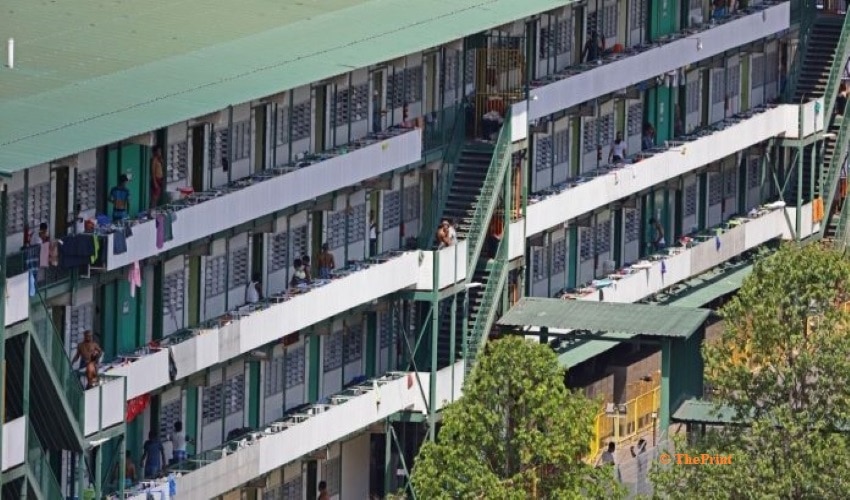

Recent series of suicides and attempts of suicides among migrant workers in Singapore has raised concerns over the mental health and wellness of thousands of migrants living in poor conditions in dormitories with low wages due to Covid-19.
Last updated on September 20th, 2023 at 11:00 am
Recent series of suicides and attempts of suicides among migrant workers in Singapore has raised concerns over the mental health and wellness of thousands of migrants living in poor conditions in dormitories with low wages due to Covid-19.
Back in April, the authorities in Singapore had sealed off the blocks of dormitories that house thousands of migrant workers in the country, maximum of which are from South Asian countries. This led to rapid rise of Covid-19 cases among migrants living in extremely congested dormitories with poor and inhabitable conditions, raising many questions from the human rights advocates. Almost four months later the dormitories are still locked down and under quarantine. The migrants who are Covid-free now are also locked down under similar conditions. Moreover, the uncertain employment conditions and extremely low wages are also the crisis situation for these workers.
These conditions are posing a mental health crisis among workers, say human rights activists and mental health experts. Many videos have surfaced online on social media showing them walking on rooftops and window ledges, putting mental health of workers at question and concern.
In another incident popularly circulating on social media platforms on Sunday, a 36 year old migrant worker was seen in his dormitory, all bloodied sitting on steps after self-harming.
Ministry of Singapore has said that this incident doesn’t show a rise in number of migrant workers attempting to take their lives, but an official data hasn’t been shared yet. The issue of migrants being unable to return back to their countries is also a stem problem raising concerns of mental health among migrants in Singapore.
The concern of restricted movement of migrants in dormitories with long periods of isolation to be a contributory factor to their mental health was also shared by Kenneth Mak, the Health Ministry’s Director of Medical Services. At a press conference on Thursday, Mr. Mak said that government was addressing the issue on priority and also that authorities are committed to the condition of migrant workers on a long-term basis, keeping their mental health on priority.
Out of 54,000 Covid-19 cases in Singapore, approximately 300,000 cases are among migrant workers living in dormitories.
The India-UK Free Trade Agreement (FTA), recently learnt, has attracted some attention for one of its benefits enabling Indian workers…
In a notable step toward inclusive education, the Kerala government has launched the 'Jyothi' scheme to mainstream the children of…
In December 2024, the UK government issued a Technical Capability Notice (TCN) to Apple, requiring the firm to create a…
CrowdStrike Holdings Inc, an Austin, Texas-based cybersecurity company has announced it will lay off about 500 employees around the world,…
The union representing the Samsung India Workers' Union (SIWU), which is affiliated with the Centre of Indian Trade Unions (CITU),…
There has been a dramatic change in Florida's workers compensation landscape. Recent legal reforms to improve access to care and…
This website uses cookies.
Read More